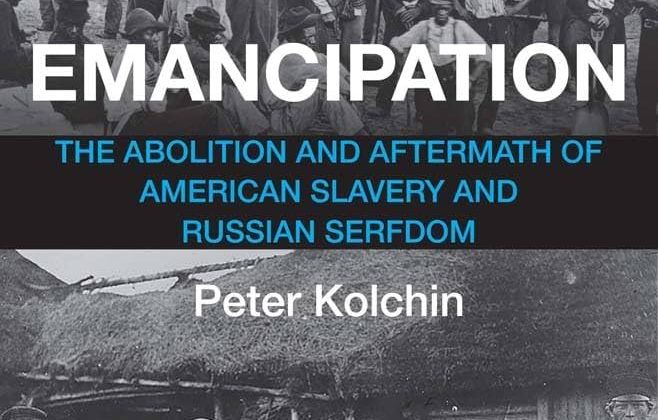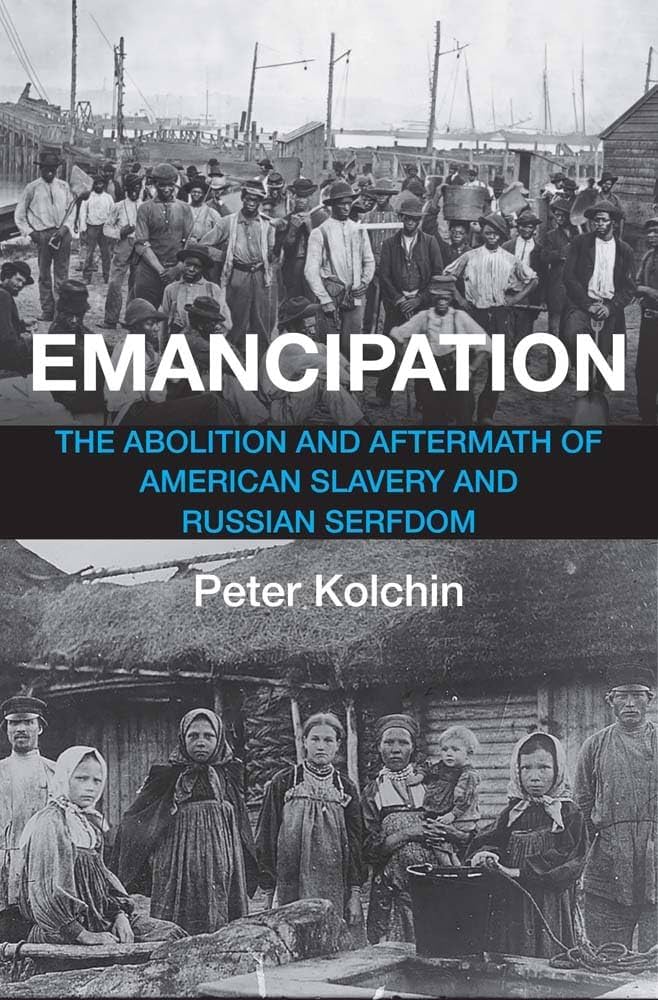

Peter Kolchin is Reed Professor Emeritus of History at the University of Delaware. This interview is based on his new book, Emancipation: The Abolition and Aftermath of American Slavery and Russian Serfdom (Yale University Press, 2024).
JF: What led you to write Emancipation?
PK: Emancipation is a companion volume to Unfree Labor: American Slavery and Russian Serfdom, which I published some three decades ago. After completing other books, especially American Slavery, 1619-1877, I returned to this project and was able to finish it once I retired.
JF: In 2 sentences, what is the argument of Emancipation?
PK: American and Russian emancipations, both of which occurred in the 1860s, were surprisingly similar, despite differences in the way they came about. In both, former slaves and serfs strove to maximize their autonomy and freedom; in both, former slaveowners and serfowners sought to preserve their own prerogatives. A comparative approach reveals that a more radical break with the past was possible in the United States than in Russia, with the freedpeople coming to enjoy republican citizenship, higher levels of literacy and mobility, and some degree of landownership, despite the violent overthrow of Reconstruction and the institution of Jim Crow policies in its aftermath.
JF: Why do we need to read Emancipation?
PK: Placing the two emancipations in comparative perspective enables historians to see what was unique, and what was not, about each event. To take one example, despite what Americans believed at the time, Russian serfs were not given land as part of their emancipation; rather, they were required to pay for land they were already working, and to do so over forty years, with interest. That finding throws new light on the “land question,” and highlights some of the reasons that Russian peasants remained mired in poverty at the end of the 19th century.
JF: Why and when did you become an American historian?
PK: I had wonderful history teachers in high school and college, particularly Gus Pigman and James Shenton. At Johns Hopkins University, David Donald proved to be a model mentor. I suppose I hoped to follow in their footsteps.
JF: What is your next project?
PK: I have several projects in mind, but I can say for certain that none of them will take me thirty years!
JF: Thanks, Peter!